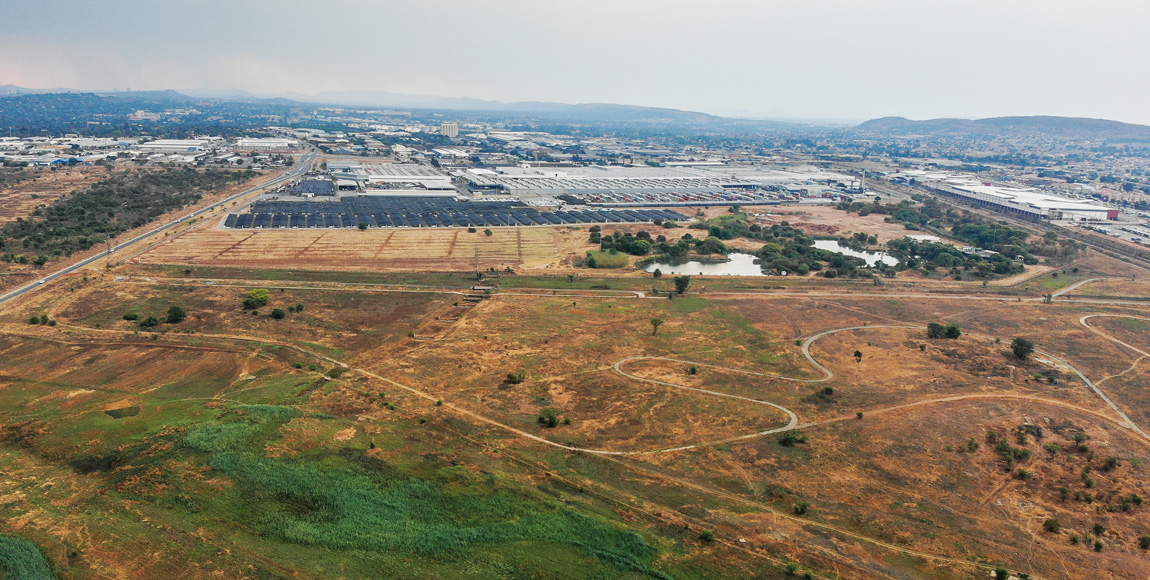Ford partners with government

Ford Motor Company of Southern Africa (FMCSA) has embarked on a public-private partnership with national, provincial and local government to facilitate the creation of the Tshwane Automotive Special Economic Zone (SEZ), situated adjacent to the company’s Silverton Vehicle Assembly Plant in Pretoria.
The project, officially launched last month by South Africa’s president, Cyril Ramaphosa, envisages the establishment of an automotive component supplier park designed to bolster investment and job creation in the Tshwane area, simultaneously enabling future expansion opportunities for Ford’s local operations.
“The launch of the Tshwane Automotive SEZ is a milestone achievement following five years of engagement between Ford Motor Company and government, specifically the Department of Trade and Industry (Dti),” says Neale Hill, MD of FMCSA.
While the Dti is the key stakeholder – it is responsible for all 10 SEZs in South Africa – the new park represents collaboration on a provincial level with the Gauteng Province, the Gauteng Growth and Development Agency (GGDA) and the Automotive Industry Development Centre (AIDC), which will administer the facility. On a local government level, partners include the City of Tshwane and the Tshwane Economic Development Agency (TEDA).
The project will be developed in several phases, with construction of the first stage already underway. Once completed, the park will span 162 ha on land owned by the City of Tshwane. “Nine Ford supplier companies have expressed interest in investing in the SEZ, which will create approximately 7 000 jobs in the initial phase,” says Ockert Berry, the company’s vice-president of operations for the Middle East and Africa.
“In conjunction with the AIDC, we are engaging with further supplier companies to establish operations within the park, which will ultimately create an estimated 70 000 jobs in the total value chain once completed.”
In his address, Ramaphosa described Ford’s decision to partner with government as immensely encouraging. “It comes at a time when business, government, labour and civil society must work together to resolve the twin challenges of slow economic growth and unemployment,” he said.
He explained that there were a number of benefits associated with bringing business to a SEZ, such as a preferential corporate tax regime, building allowances, employee tax incentives, favourable customs regulations, VAT exemptions and support for capital investment and training.
“This Tshwane Automotive SEZ will positively contribute to our industrial strategy by attracting automotive component manufacturing companies and related services. Its development will contribute to the development of black industrialists,” he said, reiterating that the initiative offered proof that partnership between government and the private sector was vital in driving forward South Africa’s development agenda.
Speaking at the event, Gauteng Premier David Makhura said SEZs had become potent industrial policy instruments for attracting foreign direct investment, increasing employment and growing manufacturing capacity. “We are working hard to improve the ease of doing business and streamline administrative procedures in SEZs – including the time required to set up operations,” he said.
Published by
Focus on Transport
focusmagsa




